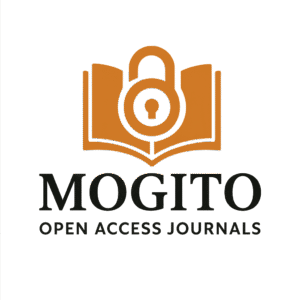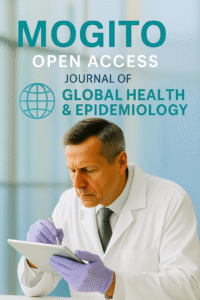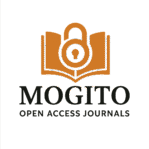Journal of Global Health & Epidemiology (MJGHE) Authors Guide
Mogito Open Access Journal of Global Health & Epidemiology (MJGHE) – Author Guidelines
Welcome to MJGHE’s comprehensive guide for authors. This document details the manuscript submission process, preparation standards, and ethical requirements for publishing with us.
At MJGHE (Mogito Open Access Journal of Global Health & Epidemiology), we proudly collaborate with a distinguished international team of public health experts, epidemiologists, researchers, and healthcare professionals. Our esteemed Editorial Board Members possess deep expertise across the full spectrum of global health and epidemiology, including infectious disease surveillance, health systems research, non-communicable diseases, environmental health, and global health policy.
Together, they ensure rigorous peer review, uphold the highest ethical standards, and maintain scientific excellence. Their dedication to advancing global public health knowledge and promoting open, inclusive access to high-impact research drives MJGHE’s mission as a leading platform for global health scholarship.



1. Journal Scope
MJGHE publishes peer-reviewed research that advances global health and epidemiology knowledge, policy, and practice. We accept interdisciplinary articles on topics such as:
- Global disease surveillance and outbreak response
- Epidemiological methods and public health analytics
- Health systems research and policy development
- Infectious and non-communicable disease epidemiology
- Environmental and occupational health
- Social determinants of health
- Maternal, child, and reproductive health
- Health equity, disparities, and global disease burden
- Vaccination and preventive health programs
- Climate change and global health impacts
- Epidemiology in humanitarian and low-resource settings
2. Manuscript Types Accepted
MJGHE welcomes the following manuscript categories:
- Original research articles with rigorous empirical data
- Review articles synthesizing global health literature
- Systematic reviews and meta-analyses
- Field reports and case studies on public health interventions
- Brief reports with preliminary but impactful findings
- Commentaries and policy perspectives
- Editorials on emerging global health issues
- Letters to the editor offering constructive feedback
3. Manuscript Preparation
Formatting:
- Submit files as Microsoft Word (.doc or .docx)
- Use Times New Roman, size 12, with 1.5 line spacing and page numbers
Title Page:
- Manuscript title, author names, and institutional affiliations
- Corresponding author’s contact information
Abstract and Keywords:
- Required for original research and reviews (max 250 words)
- Structured abstracts: Background, Methods, Results, Conclusion
- Include 4–6 relevant keywords
Main Text Structure:
- Original research articles: Introduction, Methods, Results, Discussion, Conclusion
- Other manuscript types: follow appropriate formats
4. References and Citation
- Use Vancouver citation style
- Number references in the order they appear
- Cite only peer-reviewed, accessible sources
5. Figures and Tables
- Submit as part of the manuscript or separately in high resolution (300 dpi minimum)
- Number and title all figures and tables with descriptive legends
- Obtain written consent for any patient-identifiable images
6. Ethical Standards
Human and Animal Research:
- Provide ethics committee approval documentation
- Confirm informed consent for human subjects
- Follow international ethical guidelines
Plagiarism and Originality:
- Manuscripts must be original and unpublished
- Plagiarism checks are mandatory
Authorship:
- Adhere to ICMJE authorship criteria
- Any authorship changes require written consent
7. Peer Review Process
- Double-blind peer review with at least two expert reviewers
- Decisions made within 4–6 weeks on average
- Revisions may be requested based on reviewer feedback
8. Open Access Policy
MJGHE is fully open access under the Creative Commons Attribution License (CC BY 4.0), enabling free use with proper citation.
9. Article Processing Charges (APC)
- APCs may apply to support open access publishing
- Discounts and waivers available for authors from low-income regions or financial hardship
- Contact editors_mjghe@mogitojournals.org for details
10. Submission Instructions
- Email manuscripts to: mjghe@mogitojournals.org
- Include a cover letter, full manuscript, tables, figures, and ethics approval (if applicable)
11. Contact Information
For questions about submission or policies, contact: editors_mjghe@mogitojournals.org
Visit: www.mogitojournals.org
To celebrate the launch of MJGHE, the first 10 accepted manuscripts will be published free of charge.
Submit now and enjoy open access publishing at no cost.
Ready to Publish Your Research
We’re here to guide you through every step of your publishing journey—from submission to global reach..

Let’s advance knowledge and discovery—together.
When connected with us, you aren’t growing your business alone. We have your back and put in our best to contribute to the growth of your entire team and organization. So, if you are “When you publish with us, you’re not navigating the process alone. Our editorial team is committed to supporting you through peer review, publication, and global dissemination. If you’re looking for the right platform to share your research, enhance visibility, and make a meaningful impact—Mogito is here for you.”
“We are passionate about scholarly publishing and committed to helping researchers share their work with the world. As your trusted publishing partner, we ensure a seamless, transparent, and supportive process from submission to publication.”



